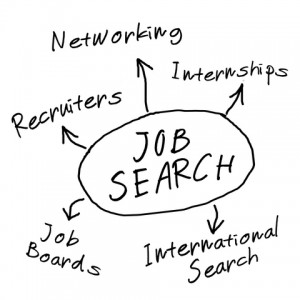Apply for a job? Be Wary of Your Social Media Use
While we might think it’s great fun and a huge joke to post all of the brilliant photos from last Friday night’s antics on our Facebook pages or to Tweet the events of your mate’s party from the other night, those looking for jobs need to be increasingly wary of just what they’re posting.

Not because it will prevent them from getting a job, but because many employers make their first interaction with applicants via social networks now. Especially those based in the digital sectors, who spend all their time using the likes of Facebook, Twitter, Google+ and LinkedIn. It’s not hard to find some people on social networks, especially if they include all the necessary details on their job applications.
Employers can search by name, location, where you went to college or University and find you that way to do some extra background research to establish if you are who you say you are, and if you’re a good fit for the position. Let’s be honest, someone aged 19 applying for a job in a quiet office with employees aged 30 and over, to give an example, who loves a night out every week getting blind drunk with their friends on a regular basis might find that they’re passed over for someone who the firm thinks is a better fit professionally.
Numerous people have also found themselves in trouble with what they’ve posted online via social media. You only have to look at “joke” Tweets and statuses that have, in some cases, resulted in prison sentences or severe reprimands from the police to see just how easy it is for people to see what you post online, and employers – who admittedly won’t put you in prison – can take dim views on what you post, even if it’s Retweets of jokes made by friends.
This isn’t saying that you should become highly professional and abandon your social life and networks while looking for a job, but it may help your career to think about exactly what you’re posting online, who can see it, and what they might think.
A lot of job applications are made as a result of what they see on social networks, so they aren’t all bad from a career perspective. The likes of LinkedIn allow employers to post job vacancies and accept applications, while many other companies will post news about their available positions on Twitter or their Facebook page, linking through to full job descriptions on their own website.
Many people have actually managed to lose their jobs based on what they’ve put on social networks, showing that it’s not only hard to get one if you compromise your chances, but very easy to lose one by posting the wrong thing. If you were to post something along the lines of “another day in a boring job” and your Facebook friend of a boss were to see that, you could well find yourself called into the boss’ office first thing. Similarly, comments about your job, pay, colleagues, anything work-related, could land you in hot water.
Searching for jobs, and getting jobs, is hard enough at the best of times, and while we all might vent our frustrations socially with the aim of getting reassurance or help from our friends and family, sometimes posting your frustrations can only make things worse. Yes, the whole point of social media is to interact with your friends and let them know what you’re doing and how you’re feeling, but with times changing and employers becoming more tech savvy, everything you do online can – and will – be scrutinized.
I’ve heard stories from friends and colleagues who have come in and said that they missed out on a job because of a question they got asked in an interview about something they posted on Facebook. Others have said that a Tweet got them called in front of not only the boss, but the directors of the company to explain what they said.
So what advice can I give you? Continue to use your social media accounts, at the end of the day, they’re designed to be “social” accounts, but adjust your privacy settings if you’re going to be posting pictures of your drunken escapades and scantily clad holiday photos so that the boss can’t see them. Or, if you’re that worried, don’t include your boss as a friend!
If you enjoyed reading this article you will also enjoy reading:








